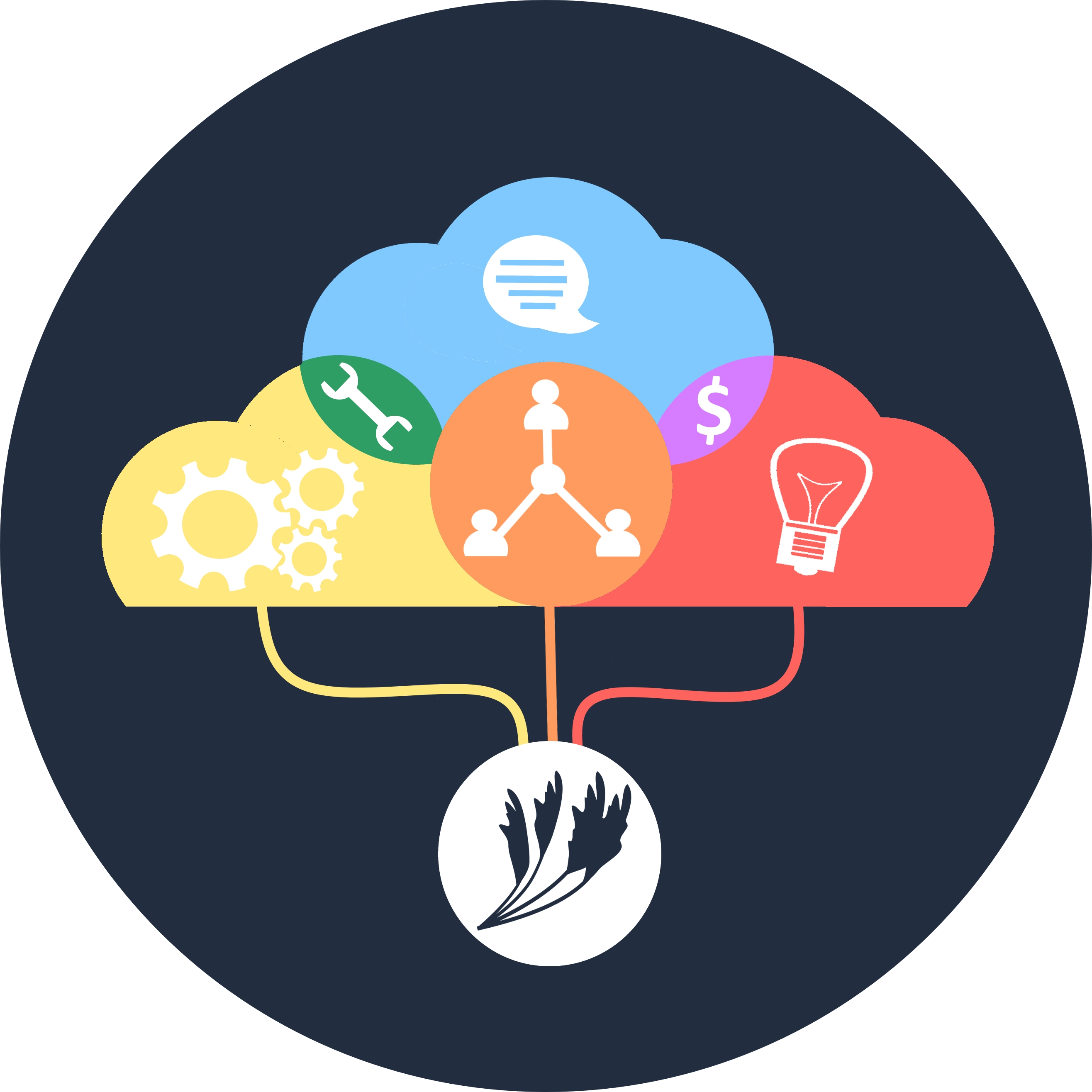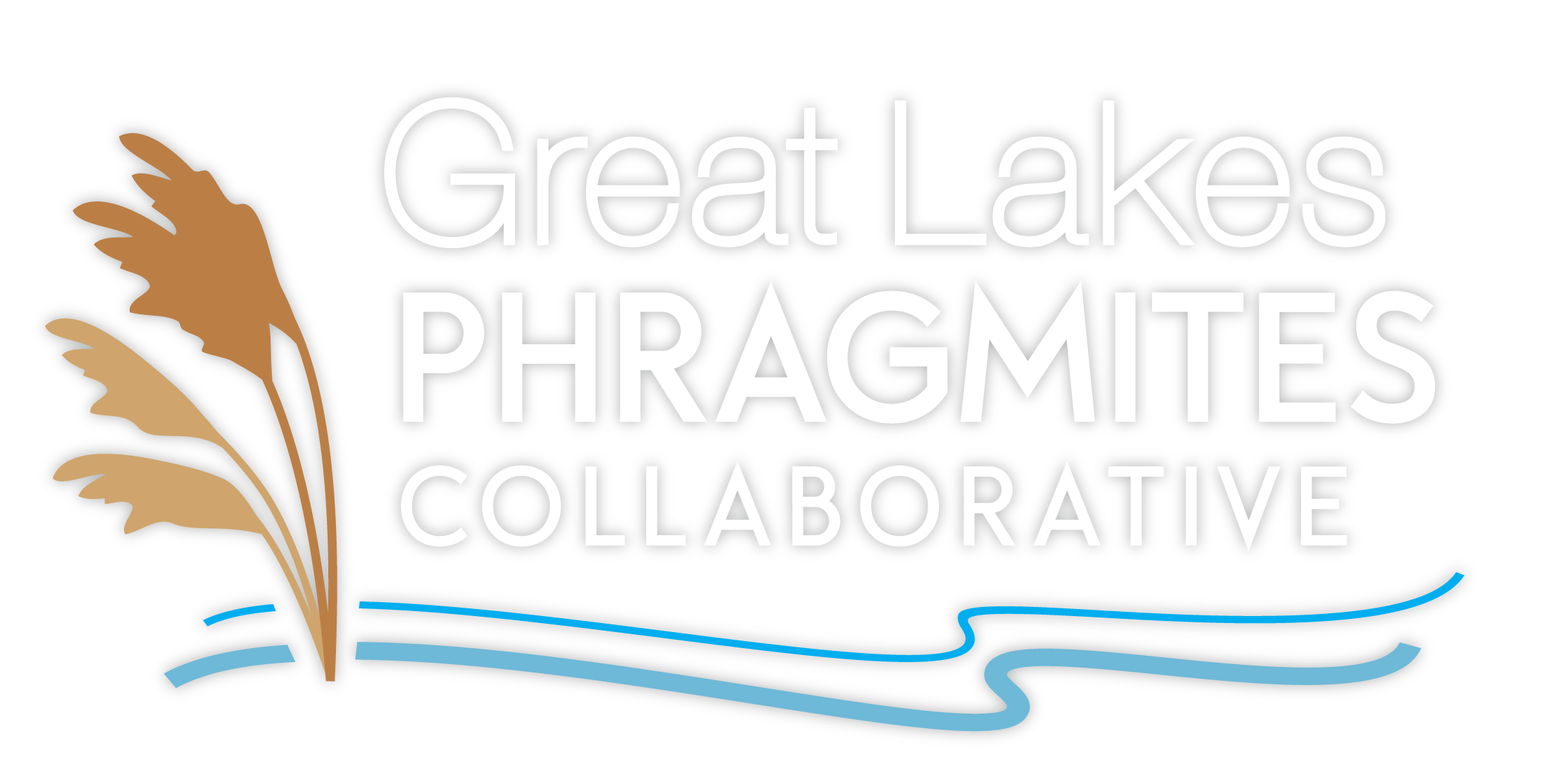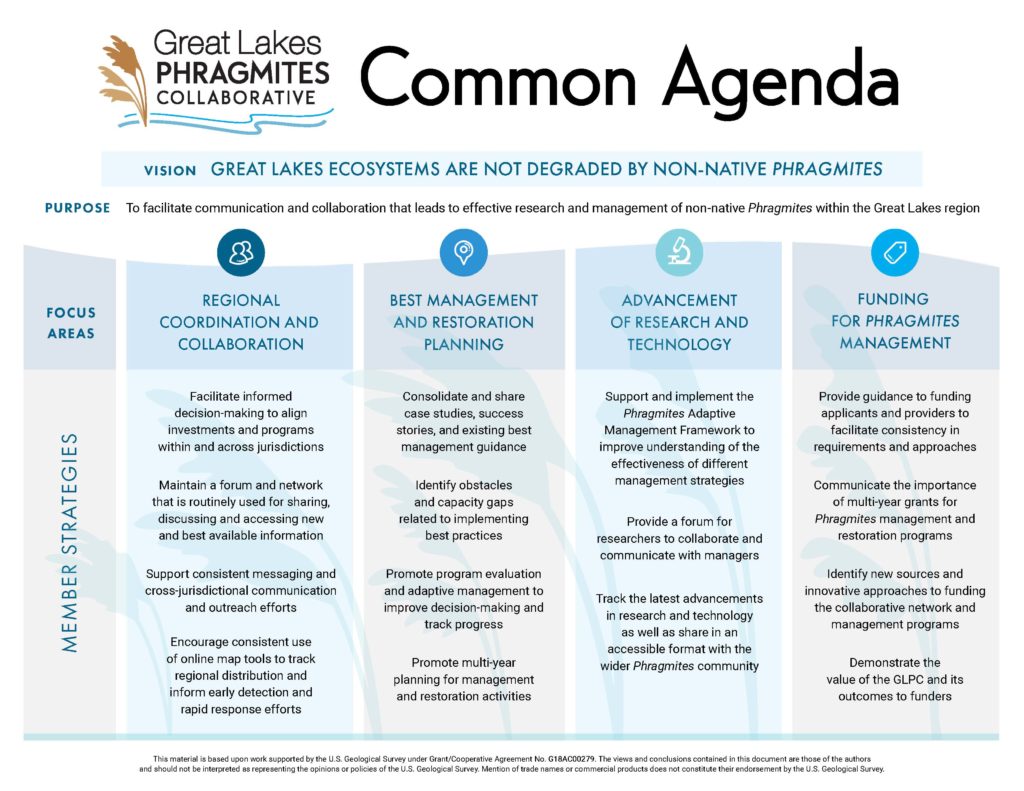About Us
The Great Lakes Phragmites Collaborative is a network of agencies, organizations, and citizens who are engaged in Phragmites in some way, including management, research, and communication.
The Collaborative was established to facilitate communication among stakeholders across the region and serve as a resource center for information on Phragmites biology, management, and research. We are led by a diverse Advisory Committee and are organized according to the principles of Collective Impact. We invite you to participate in the Collaborative by joining webinars, reading blog posts, joining our listserv, signing up for our newsletter, checking us out on social media (@glphrag on Instagram and Twitter), or contacting us by email!

Get in touch!
Core Team and Committees
The GLPC has a governance structure to ensure efficiency and effectiveness of our work. A Core Team of staff are involved in administration and day-to-day operations of the GLPC. An Advisory Committee meets bi-annually to share program updates and connect on ongoing GLPC work. Finally, Observers are an arms-length group that are informed of GLPC progress and assist or provide feedback when necessary.
Click the buttons below to learn more about each of these groups and their members. Please contact us if you would like to participate.
Core Team
A core team of staff at the Great Lakes Commission and US Geological Survey are responsible for administrative duties, communication, and leadership in development of tools for the GLPC. The core team meets monthly.
Samantha Tank
Project Manager; GLPC/PAMF Coordinator
Great Lakes Commission
sam@glc.org
Kurt Kowalski
Research Wetland Ecologist
U.S. Geological Survey – Great Lakes Science Center
kkowalski@usgs.gov
Erika Jensen
Executive Director
Great Lakes Commission
ejensen@glc.org
Theresa Gruninger
Senior Program Specialist
Great Lakes Commission
tgruninger@glc.org
Taaja Tucker-Silva
Senior Data Analyst
Great Lakes Commission
taaja@glc.org
Nichole Angell
Program Specialist
Great Lakes Commission
nangell@glc.org
Advisory Committee
Great Lakes Phragmites Collaborative Advisory Committee includes representation from federal, state and provincial governments and the broad group of stakeholders engaged in invasive Phragmites management, research, restoration, education, and outreach throughout the Great Lakes basin. The Committee provides guidance and leadership to the Collaborative as it works to develop products, facilitate communication, and foster collaboration across the region.
Federal Government Agencies
Richard King
Supervisory Biologist
US Fish and Wildlife Service, Midwest Region
richard_king@fws.gov
Madeline Sutton
Wildlife Habitat Biologist – Canadian Wildlife Service
Environment and Climate Change Canada
madeline.sutton@ec.gc.ca
Brian Smith
Ecologist
Federal Highway Administration
U.S. Department of Transportation
bsmith@dot.gov
Joshua Unghire
Biologist – Buffalo District
U.S. Army Corps of Engineers
joshua.unghire@usace.army.mil
Isaiah Messerly
Biologist
National Park Service
isaiah_messerly@nps.gov
State/Province Government Agencies
Vacant
Environmental Policy Office – Ontario Ministry of Transportation
Francine MacDonald
Biodiversity Policy Section
Ontario Ministry of Natural Resources
francine.macdonald@ontario.ca
Rich Rezanka
Biologist
Minnesota Department of Natural Resources
richard.rezanka@state.mn.us
Kevin Walters
Aquatic Biologist – Aquatic Invasive Species
Michigan Department of Environment, Great Lakes and Energy
waltersk3@michigan.gov
Mark Witt
Private Lands Biologist
Ohio Department of Natural Resources
mark.witt@dnr.state.oh.us
Amy Kretlow/ Matt Puz
Wisconsin Department of Natural Resources
amy.kretlow@wisconsin.gov / matthew.puz@wisconsin.gov
Tribal Communities
Travis Bartnick
Wildlife Biologist
Great Lakes Indian Fish and Wildlife Commission
tbartnick@glifwc.org
Alex Wieten
Water Resources Specialist
Gun Lake Tribe
alex.wieten@glt-nsn.gov
Local and Non-profit Organizations
Jason Hill
Manager of Conservation Programs
Ducks Unlimited, Inc.
jhill@ducks.org
Janice Gilbert
Wetland Ecologist and Co-Chair
Ontario Phragmites Working Group
janicegilbert@rogers.com
Academia
Andrea Locke
Coordinator – Western New York PRISM
Buffalo State University
lockeas@buffalostate.edu
Rochelle Sturtevant
GLANSIS Program Manager
Michigan Sea Grant / NOAA Great Lakes Environmental Research Laboratory
rochelle.sturtevant@noaa.gov
Collective Impact
The Great Lakes Phragmites Collaborative is guided by the principles of Collective Impact.
Collective Impact is a structured collaborative process to improve efficiency and effectiveness of inter-organizational partnerships which leads to collective progress on challenging issues like invasive Phragmites.
Learn about Collective Impact
Collective Impact is a framework intended to address complex problems through collaboration with multiple organizations working at multiple jurisdictional levels. Collective Impact was described in a 2011 paper in the Stanford Social Innovation Review.
In 2016, we published a paper about how we use the principles of collective impact to manage the Phragmites Collaborative, titled: Applying the collective impact approach to address non-native species: a case study of the Great Lakes Phragmites Collaborative.
GLPC Common Agenda
The Advisory Committee with support from the Core Team released the following Great Lakes Phragmites Collaborative Common Agenda in fall 2020. The Common Agenda a shared understanding and an agreed-upon path for addressing invasive Phragmites in the Great Lakes basin. The agenda sets goals, defines gaps and problem areas in management of Phragmites, and outlines the strategies collaborative members will use to fight invasive Phragmites.
Learn about the Common Agenda
What you can do to support the Common Agenda
We are calling upon the Phragmites Community to take action and help us make progress on the Common Agenda. There are some simple things that you can do:
- Share relevant Phragmites management, research, and resources to the Collaborative community
- Engage with other Phragmites managers and work collectively to manage Phragmites
- Consider how your activities currently or could be adjusted to align with the member strategies
- Reach out to the GLPC to discuss/explore how your work can contribute to the GLPC Common Agenda
- Join the Phragmites Adaptive Management Framework (or PAMF)

